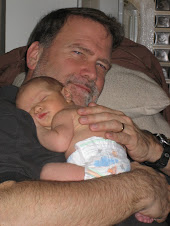The next perception to consider is, “The church is anti-homosexual.” This is a complex perception/accusation, and even in trying to determine this, I would think that questions would have to be very carefully answered. In my own unscientific poll, I found that if I asked if the church is anti-homosexual, church people initially answered “yes,” but then wanted to clarify that they were against homosexuality as a sin, but that they did not mean that they hated or looked down upon those engaged in homosexuality. It is this “love the sinner, hate the sin” dichotomy that gets blurred in trying to discuss this issue.
In our larger culture, it is incredibly difficult to find a way to say that you believe that homosexuality is abnormal human behavior, and that it is morally unacceptable as well, without being branded “homophobic.” Since there is increasingly little room for this opinion, there is little hope that those outside the church will ever find that those who follow Jesus, believe the Bible, and take this view as anything less than bigoted.
Unfortunately, some believers have engaged in bigoted behavior toward those who practice homosexuality, have spoken disparagingly of these men and women, and generally failed to respond with the same kind of compassion and care that they would extend to sinners living moral lives but embracing cultic teaching, or sinners who choose immoral heterosexual sin as their vice of choice.
Believers rightly understand that some sins are more serious than others. For example, the warnings against heterosexual sexual sin outside of marriage in 1 Corinthians 6 (with a prostitute in that context) is said to be unique in its consequences from other sins. Similarly, homosexual sins recounted in Romans 1 are a unique degradation against one’s own humanity as a judgment brought upon mankind by God. All sin brings punishment and, ultimately, spiritual death. But some sins have even more dire consequences in this life.
This should not lead, though, to an attitude of superiority by believers toward those engaged in such sins. We should always be anti-sin. This may even mean opposing publicly those who promote their sins as right, good, and normal. But we are not anti-sinner, at least in the way that we are perceived to be.
Chapter 5 in unChristian wrestles with this issue, highlighting through data and anecdote the failures of the church. I am appalled by some of the stories they tell of Christian bad behavior toward gays and lesbians. Having had close friends who struggle within this lifestyle and culture, I know the challenge of showing love and concern while not expressing approval of choices. I agree that we can affect people in our lives, but I am not sure that the authors’ expressed hope that we can be perceived as loving and accepting of people regardless of lifestyle is possible on a large scale. No matter how much Christians can do individually and corporately to show love and acceptance, the cultural shaping of acceptance of gay and lesbian lifestyles and normal make us even more out of step with our neighbors than does our pro-life bent.
Thursday, July 31, 2008
Subscribe to:
Post Comments (Atom)





No comments:
Post a Comment